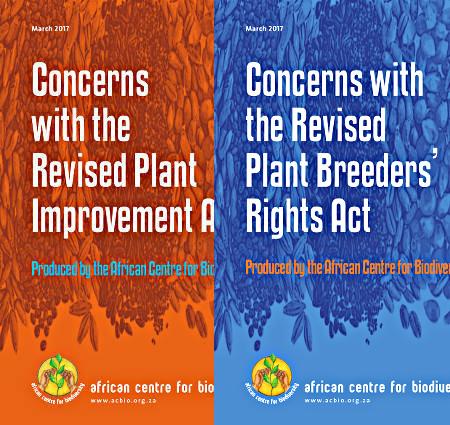Latest Resources

8 October 2019
Crunch Time for the Seed Treaty
A review of some outstanding issues in the negotiation Will the effort to fix ITPGRFA’s broken benefit sharing system measure up to expectations? (Veuillez cliquer ici pour le français) (Por favor, haga clic aquí para el español) This paper reviews the key outstanding issues that are expected to be discussed by the ITPGRFA Governing Body, […]

2 August 2019
Transforming the Farm Input Support Programme (FISP) to diversified agroecology practices in Shib...
This is a second briefing paper to come out of farmer exchange events held in Zambia in May. The first exchange took place in Kalulushi District, Copperbelt Province, and you can find that briefing paper here. Then a second exchange was convened in Shibuyunji District, Central Province, where the objective was to continue sharing ideas […]

23 July 2019
Moving from the Farm Input Subsidy Programme (FISP) to Agroecology in the Kalulushi District, Cop...
This briefing highlights key issues raised at a farmer exchange and learning event held in May 2019 in Kalulushi District, in the Copperbelt Province of Zambia. The overall objective of the meeting was to share and exchange ideas on transitioning to a smallholder support system for diversified agroecological farming. Participants discussed the roles that farmers, […]

4 October 2018
GM0 ALERT: news and status quo in South Africa
As part of the African Centre for Biodiversity (ACB)’s monitoring and resistance of GMO activities in SA, we share with you, our latest GMO Alert. In this alert we highlight the following issues concerning GMOs in South Africa: General release of the Monsanto/Water Efficient Maize for Africa (WEMA) GM drought tolerant maize on hold as […]

17 September 2018
The SADC PVP Protocol: Blueprint for uptake of UPOV 1991 in Africa
In the recently published discussion paper, ‘The SADC PVP Protocol: Blueprint for uptake of UPOV 1991 in Africa’, Sabrina Masinjila and Mariam Mayet, provide an updated critique on the regional Plant Variety Protection (PVP) system developed under the auspices of the Southern African Development Community (SADC) – the SADC PVP protocol – adopted by the […]

31 July 2017
No Safe Limits for Toxic Pesticides in Our Foods
On 7 April 7 2017 the South African government issued draft amendments to its regulations governing the legal limits for pesticide residues on food crops. The proposed amendments expose the gaps in regulations to date, despite the cultivation of herbicide-tolerant GM crops for almost two decades. As the African Centre for Biodiversity (ACB) team researched […]

18 July 2017
GM Cotton push in Swaziland: Next target for failed Bt cotton
This paper examines the application of the Bt cotton field trials currently underway in Swaziland. This is situated within the broader wave of GM application and trials across the continent, along with the weakening of national biosafety regulations, as part of the GM push across Africa. This paper is based on research on the Swaziland […]

25 May 2017
South Africa and 2,4 D stacked GM maize: biosafety, socio-economic risks
In 2015–2016 Dow AgroSciences Southern Africa (Pty) Ltd performed field trials on maize tolerant to 2,4-D (event DAS-87078-9) and stacked varieties carrying not only 2,4-D tolerance, but also glyphosate tolerance and/or Bt insectidal toxins. The trials are on going in 2017. The trials follow the approval for import for food, feed and processing in 2012, […]

27 March 2017
Briefings on the revision of South Africa’s seed laws: Entrenching an unjust and unsustaina...
As we continue to engage and mobilise around the seed policy and legislation revisions, ACB has developed 2 easy-to-read documents outlining the central concerns and possible alternative directions for seed policy to move in South Africa. Despite the public interest to support an equitable seed system, the Plant Improvement and Plant Breeders’ Rights Bills, create […]

28 July 2016
ACB Preliminary comments on Draft Regulations Implementing the Arusha Protocol for the Protection...
Draft Regulations for the implementation of the African Regional Intellectual Property Organisation’s (ARIPO’s) Arusha Protocol for the Protection of New Plant Varieties (Arusha Protocol), were considered for adoption in June 2016. The proposed regulations included provisions designed to intimidate and force seed processors, seed suppliers, government certification officers and even farmers’ organisations to police and […]
